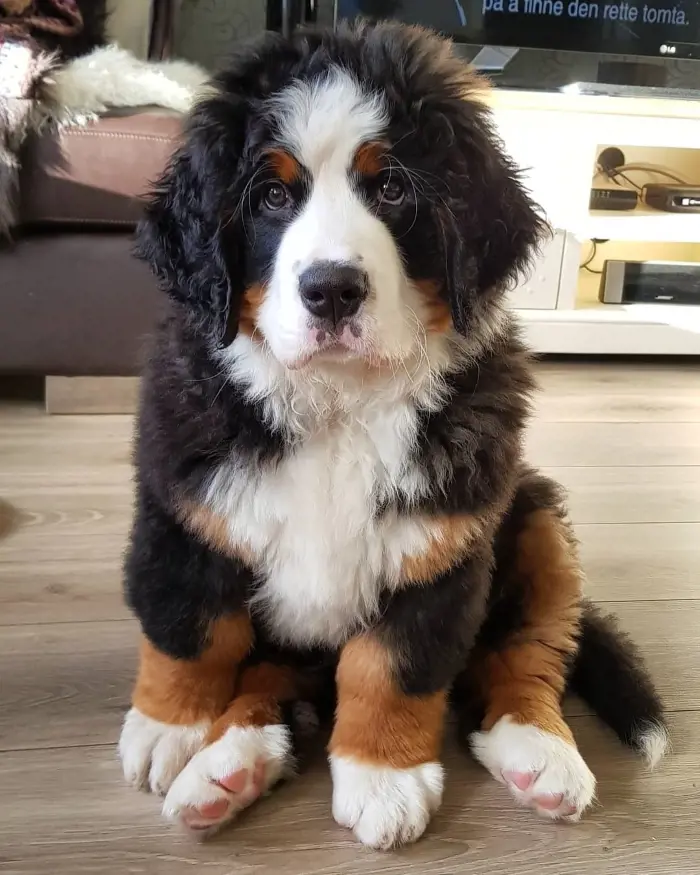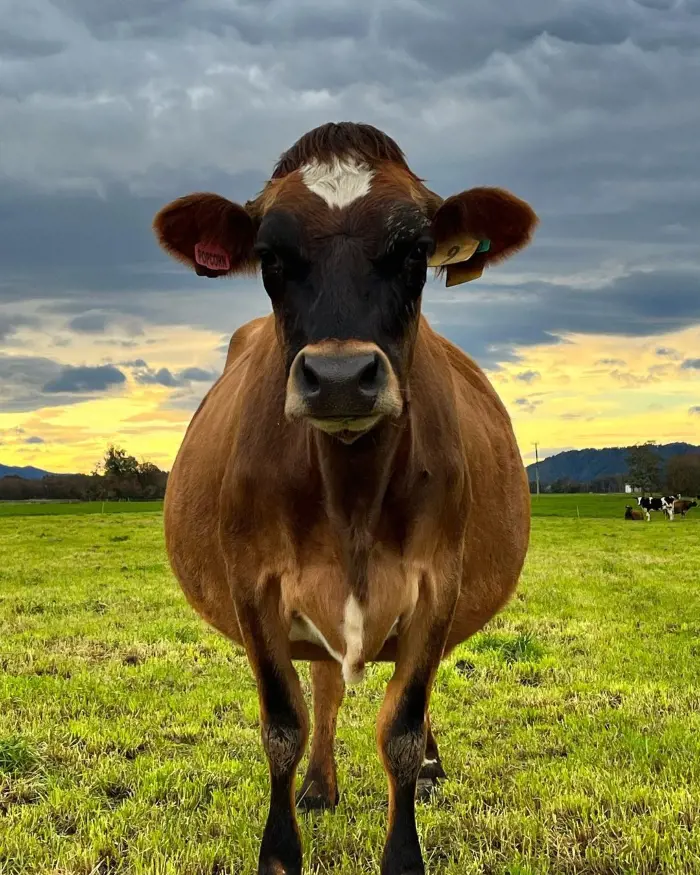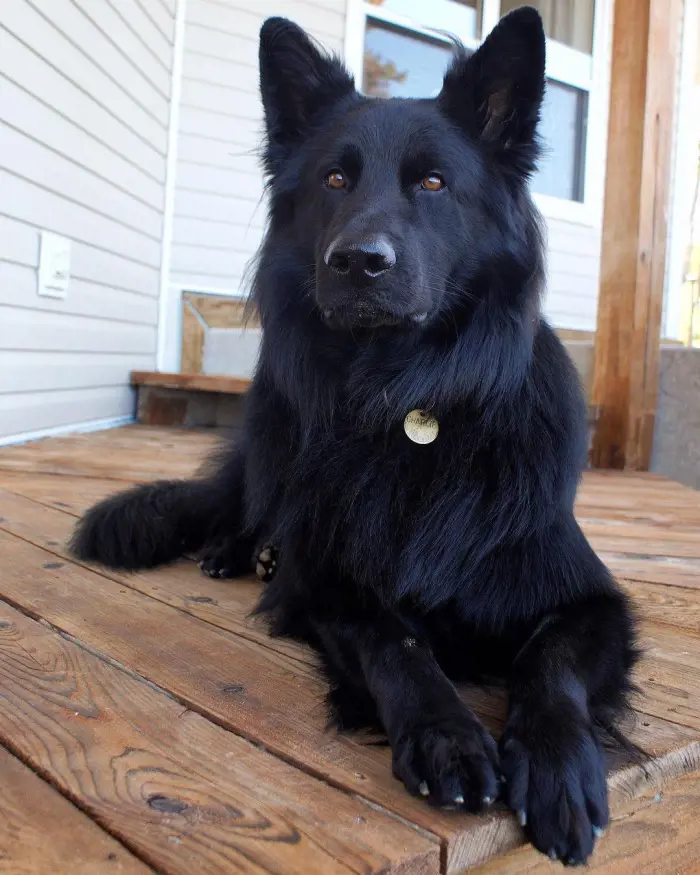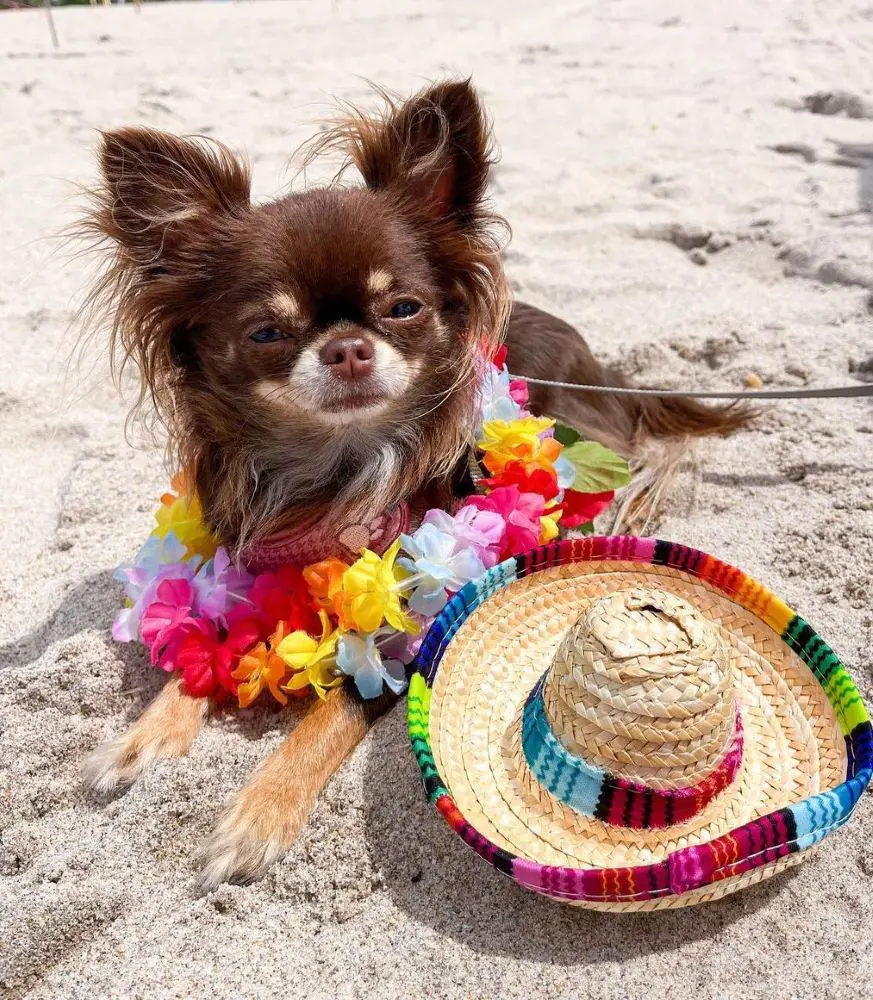20 Foods Dog Shouldn't Eat, and 13 Safe Edibles For Your Pup!

We share our hearts and homes with our beloved pets, but is it safe to share your favorite foods with them? No, not necessarily. Some "people foods" are appropriate for your dogs, while others can be detrimental to their health and metabolism. Many human meals are extremely poisonous and may harm dogs.
Many edible and non-edible possibly toxic food products may be present in your home. So, you should be aware of the facts and data that explain why some human foods should be kept away from your pets.
Here is a detailed guide on what foods your dog shouldn’t eat and what edibles are safe for them.
20 Toxic Foods Dogs Shouldn’t Eat
The most common human foods toxic to dogs are avocados, chocolate, raisins, and sugar-free items containing Xylitol. Many other foods that are safe for us are lethal for your pup.
Dogs live the longest if provided with proper nutrition and healthy human foods.
Make sure your dog does not eat the 20 foods listed below to avoid any food poisoning in them.
1. Avocado
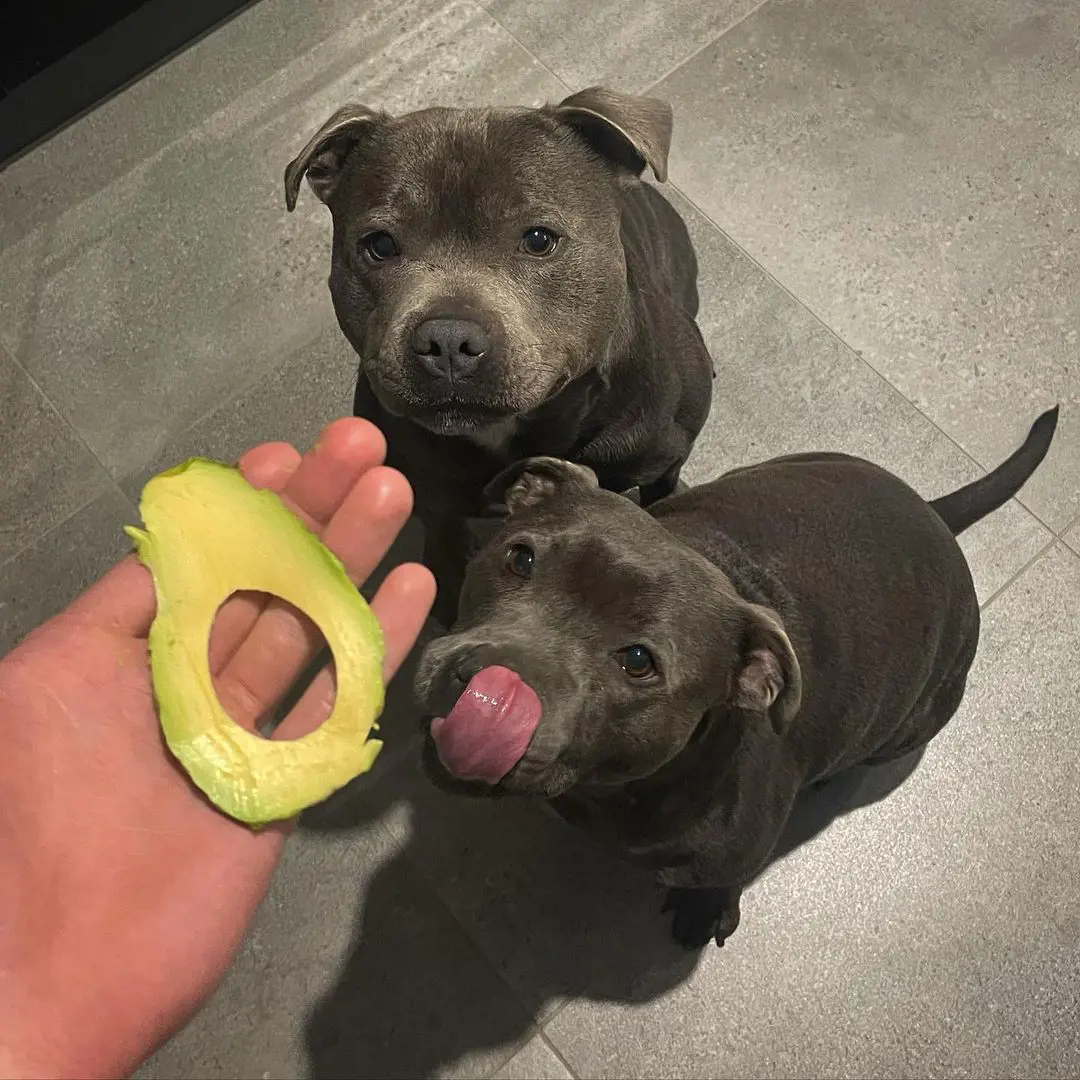
Dogs should avoid eating Avocados. The primary culprit is the fungicidal toxin called persin present in them. It can cause serious health problems in most of the animals.
Veterinarians say dogs are more resistant to Persin than other animals, but it is still harmful. When a dog consumes Avocados, the reaction to Persin causes symptoms like vomiting, diarrhea, and myocardial damage. It can also lead to death.
2. Alcohol
Dogs should not consume alcohol. Alcohol has a similar effect on dogs; like humans, it affects their central nervous system, but the severity is drastically high. Even a tiny amount of alcohol can quickly lead to alcohol poisoning in dogs.
The symptoms include vomiting, diarrhea, drooling, decreased coordination, Tremors, and dangerous situations like seizures or breathing difficulties.
3. Coffee

Just like alcohol, dogs should not consume coffee or coffee grounds too. Coffee contains a chemical called Caffeine. Caffeine is a life-threatening component to dogs and cats. When consumed by dogs, this toxic chemical can lead to severe symptoms like increased heart rate and hyperactivity.
It can also cause panting, excessive thirst and urination, tremors, seizures, and death. Even a tiny amount of coffee, around 140 mg/kg (63 mg/lb), can be deadly toxic for dogs.
4. Onions, Garlic, and Chives
Dogs should avoid eating onions, garlic, chives, or any other herbs from the Allium family. These human food items contain compounds like disulfides and sulfoxides, which can damage the body's Red blood cells (RBC).
This leads to anemia in many dogs. Some breeds, like Akitas and Shiba Inus, are extra sensitive to onions and garlic. It is dangerous to all breeds and can cause symptoms like weight loss, a faster heart rate, labored breathing, loss of appetite, "muddy" colored gums, etc.
5. Macadamia nuts
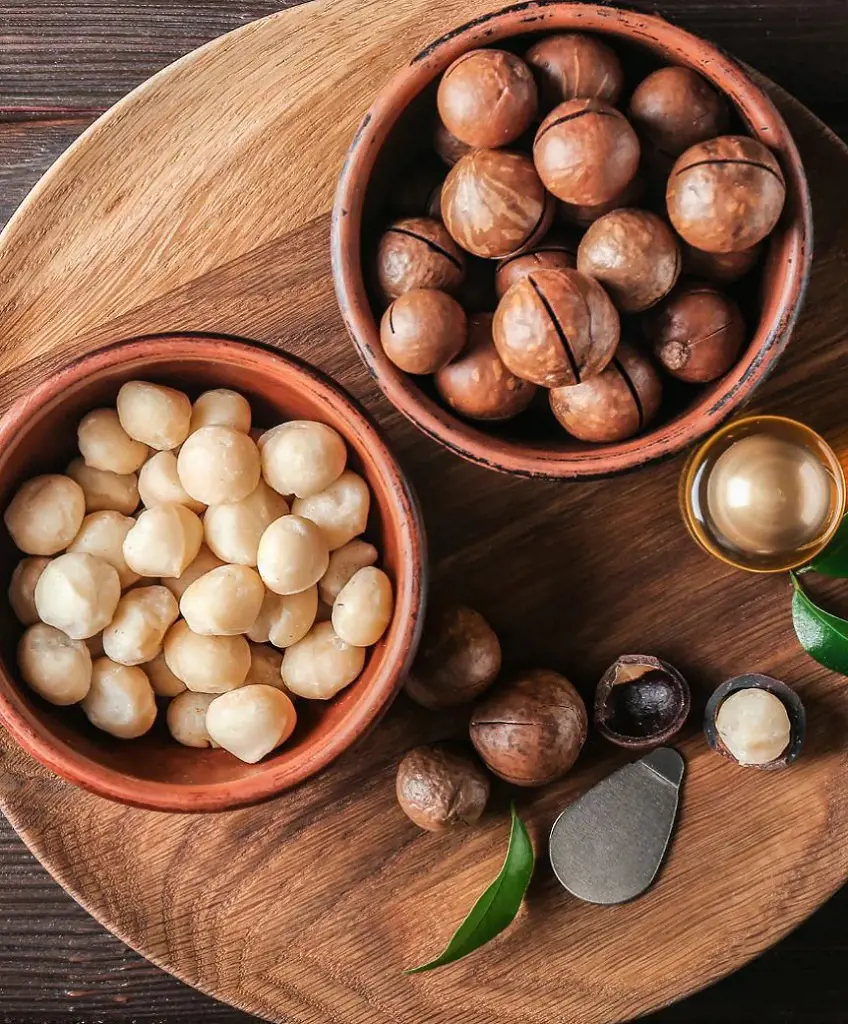
Macadamia nuts are dangerous for dogs. It is so toxic that they can suffer from weakness, depression, vomiting, tremors, hyperthermia, and more.
Such symptoms can occur in them within just 12 hours of consumption. It can also cause the hind legs in them.
6. Salt
Dogs should avoid eating salty foods daily. A little bit of salt as an electrolyte is necessary for a dog's health. But it can quickly affect the fluid balance in the dogs' cells.
It leads to gastrointestinal problems such as vomiting and diarrhea in dogs. Too much salt can also cause tremors, seizures, and coma. Foods containing high amounts of sodium also cause excessive hair loss in dogs.
7. Raw meats and eggs
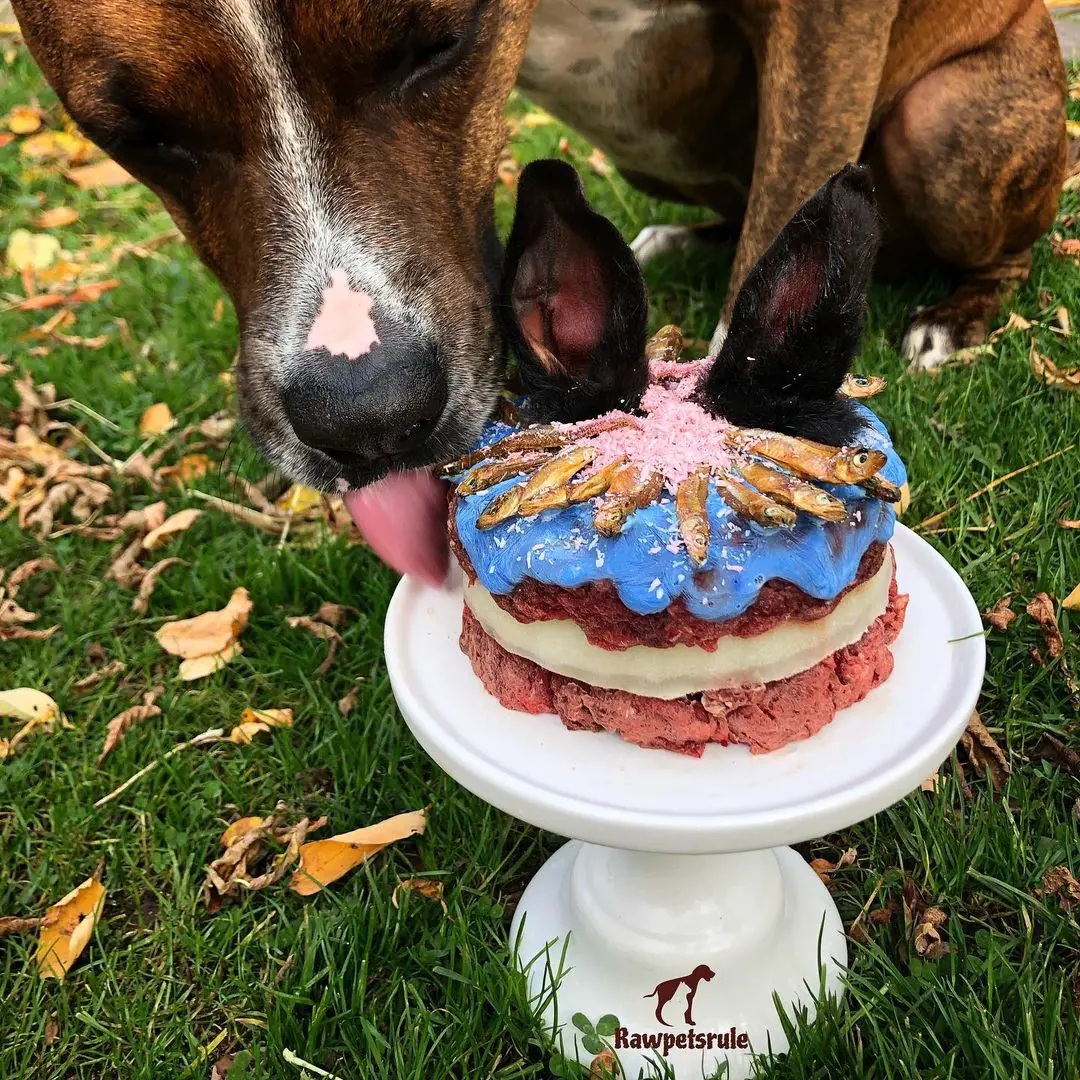
Dogs should not eat raw eggs and raw meats as they may get exposed to harmful bacteria like Salmonella, E. coli, and more. Some meats, like Pork meat, can also have invisible cysts of tapeworms which can lead to Taeniasis.
8. Sugar
Eating sugar is bad for your dog's health. Although moderate amounts of naturally occurring sugars can have little to no effect on dogs, processed sugar can have harmful effects on them.
It can lead to obesity and metabolical problems.
9. Grape and Raisins
Dogs should never eat grapes and raisins, which can lead to sudden kidney failure. Symptoms may include not passing any urine or changes in the amount of urine passed, loss of appetite, vomiting, and diarrhea.
10. Spicy Food
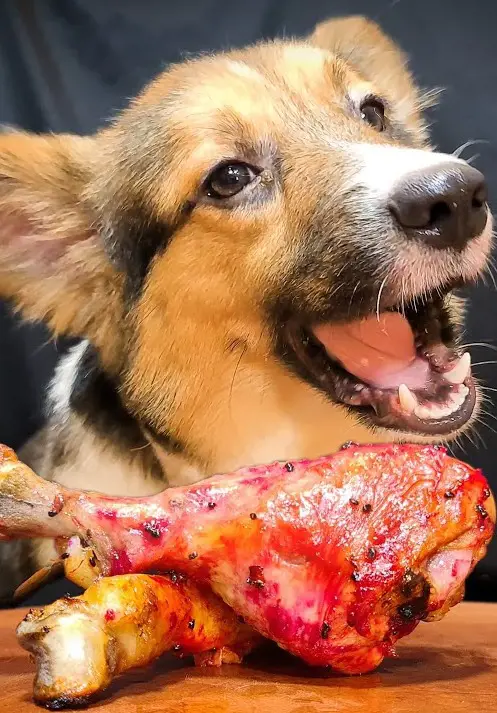
Hot and spicy foods can cause ulcers, vomiting, and diarrhea in dogs. It also causes excessive thirst in them, and drinking lots of water at a time creates an imbalance in their digestive juices.
Overall, dogs are not tolerant of spices, so avoiding spicy foods for dogs is the best choice.
11. Cinnamon
A small amount of Cinnamon is not toxic for dogs. However, if given in excess, Cinnamon can cause severe effects on their health.
The significant effects of being aware of this are low blood sugar and liver disease. It also causes difficulty in breathing and irritation around the mouth.
12. Ice Cream
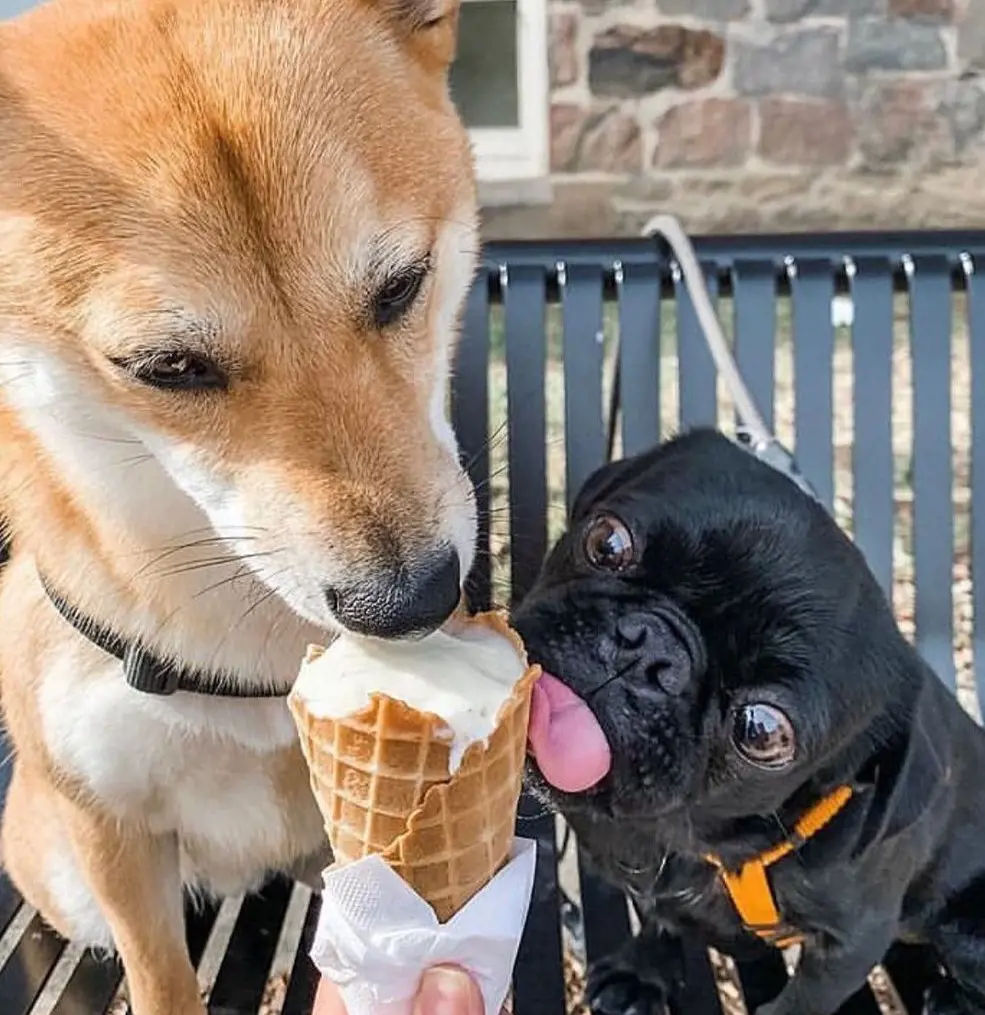
When consumed by a dog, ice cream causes some digestive issues like vomiting, diarrhea, gas, stomach pain, and pancreatitis.
Dogs do not process lactose present in milk products properly, so giving ice cream is harmful to them. Ice cream also contains other ingredients like chocolate and sugar, which can cause more problems. Especially in sugar-free ice cream, a compound called Xylitol is present, which is highly hazardous to dogs.
13. Apple, Cherries, Apricots, or Plums
Apples, apricot, cherry, and plum seeds contain a toxic compound called cyanide. Consuming cyanide causes the inability of the Red Blood Cells of dogs to transfer oxygen to the body parts properly. The symptoms include irregular and fast heartbeat, vomiting, seizures, coma, and even death.
14. Mushrooms
Mushrooms have a diverse variety of compounds that may be toxic for dogs. They may cause damage to red blood cells, hallucinations, kidney and liver failure, vomiting, and diarrhea. Although some safe white grocery store mushrooms are safe in small amounts, it's best to avoid giving mushrooms to your dog as a treat.
15. Nutmeg
Dogs shouldn't eat foods containing nutmeg. It has a compound called myristicin, which is toxic for them.
This compound causes hallucinations, severe vomiting, and weakness in your dogs. You may have to call your veterinarian when the dog has consumed nutmeg.
16. Energy Drinks
Energy drinks or sports drinks contain lots of caffeine, sugar, or the sugar-free compound Xylitol. All of these components are toxic for your dogs.
So, avoid giving energy drinks to your drinks. The only drink that should be given to dogs is water and some fruit juices. Other beverages should be best avoided.
17. Uncooked Dough and Yeast
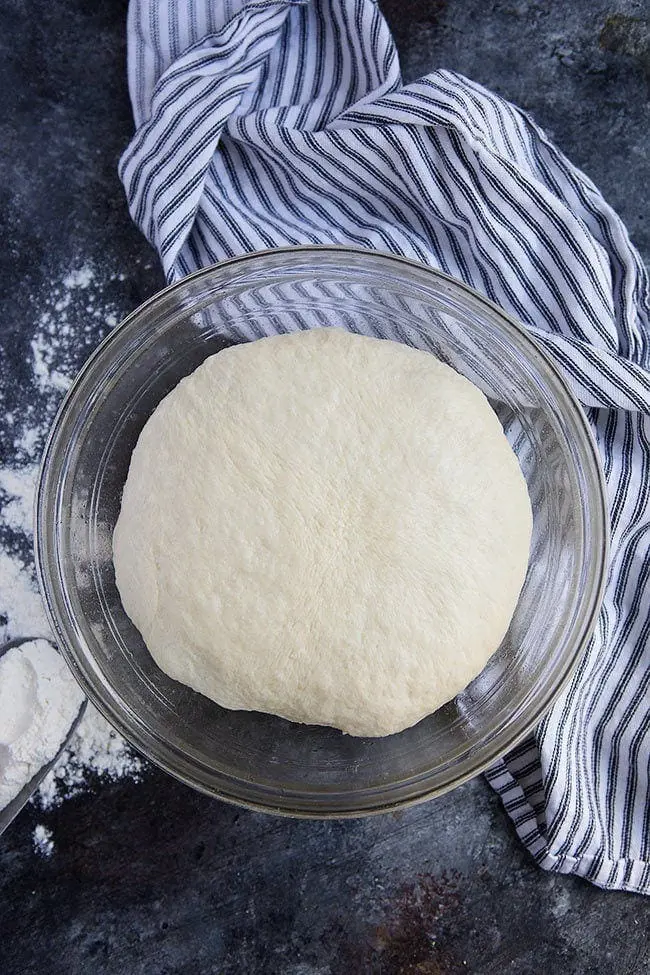
Raw dough containing yeast is harmful to eat for your dogs. It can expand in your dog's stomach and cause severe pain and potentially hernia. Moreover, the yeast and sugar that may be present in the dough can ferment into alcohol production, which is another no-no for your dogs.
So, when your dog accidentally consumes any raw dough, contact your veterinarian immediately.
18. Fatty Cuts of Meat
Many dog owners like to give their dogs fatty cuts of chicken skin, turkey skin, and ham as a treat. However, it will do more harm than benefit for your dogs.
Such food items contain high fat content, which leads to acute pancreatitis in dogs. It is a life-threatening condition. So, to keep your dog healthy, avoid giving foods containing high amounts of fat.
19. Chocolate, Gum, or Sugar-free Candy

Chocolate has a compound called theobromine which is lethal for dogs. Chocolate poisoning in dogs is the most common, especially during the holiday season.
The symptoms of chocolate poisoning in dogs are hyperactivity, pancreatitis, abnormal heart rhythm, seizures, vomiting, and diarrhea.
Similarly, sugar-free gums and candy have a chemical known as Xylitol. This is a toxin for dogs as it causes a rapid drop in their blood sugar level leading to weakness, seizures, and even liver failure.
A 65-pound dog can die after consuming the Xylitol amount present in just around five sugar-free gums.
20. Bones
You may be surprised to know this, but dogs and bones do not go in handy all the time, as shown in cartoons and movies.
The risks of giving cooked bones or uncooked ones to your dogs can include broken teeth, mouth and tongue injuries, choking, bleeding from the rectum, bone fragments scraping the lines of the GI tract, GI tract blockages, illness caused by bacteria on raw bones, vomiting, and diarrhea.
So it's better to give other chewy alternatives for your dogs as a treat rather than giving bones.
13 Human Foods Dogs Can Eat Safely
After discovering so many dangerous foods for your dogs, you may question whether feeding your dog human food is ever okay. The answer is yes.
Although the list of toxic foods for dogs is long, the list of other safe edible foods for your pups is also ample.
Here are 13 tasty and healthy human foods you can feed your dogs as a treat.
1. Carrots, Cucumber, and Celery
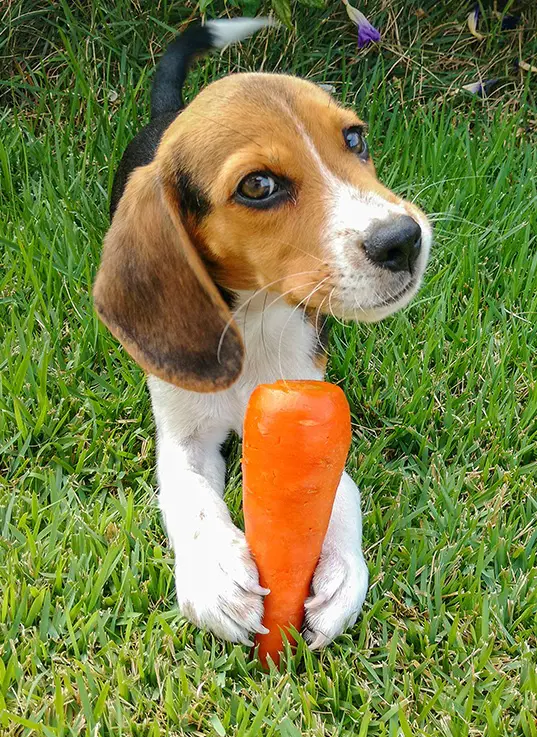
The three C's, carrots, cucumber, and celery, are nutritious and healthy dog treats. These foods are crunchy, which dogs love.
They are rich in vitamins and minerals and have less fat and carbohydrates. It is best to give as treats for overweight dogs.
2. Rice
White rice is low in fiber, easy to digest, and quick to prepare. Veterinarians also suggest giving plain rice to your dogs when they have an upset stomach.
It is healthy and filling at the same time. Many commercial dog food products contain rice as the main ingredient.
3. Salmon
Well-cooked salmon and other fish are healthy for dogs. They are rich in omega-3 fatty acids, supporting their immune system and making their coat shinier. However raw salmon may be risky due to the potential hazard of bacterial infection.
4. Cooked Eggs
Eggs are healthy for your dog because they are a great source of protein, linoleic acid, and vitamins A, B2, and B12. All of these nutrients are beneficial for their skin and coat.
5. Corn and Popcorn
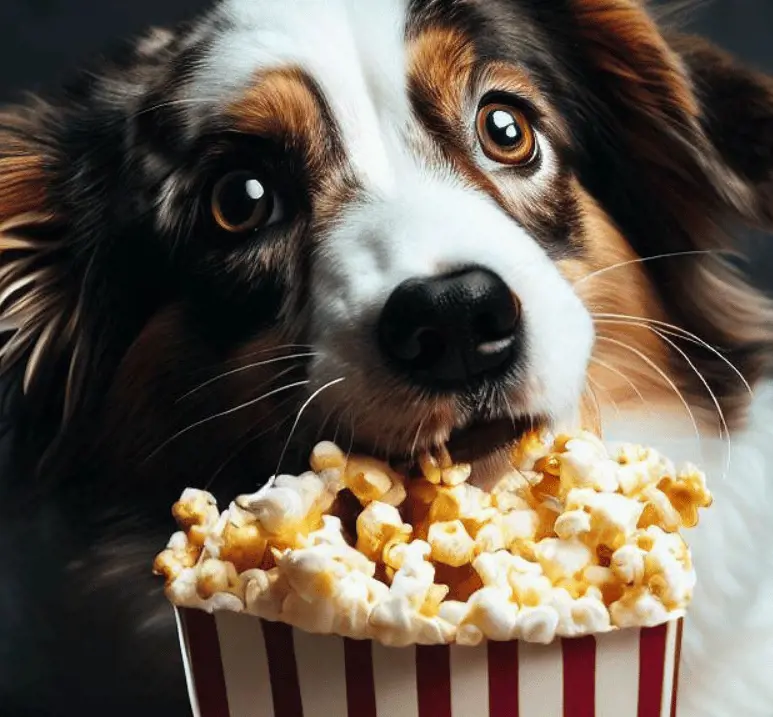
Cooked corn is a healthy source of nutrients for your dogs, but make sure you always give it to them off the cob, as the cob can be a choking hazard.
It contains proteins, and carbohydrates and is a significant filling component too. Similarly, popcorn is also healthy for your dogs if it does not have salt or butter. Many dog food products also use corn as the base ingredient.
6. Cashews
Unsalted cashews and peanuts are healthy human foods safe for your dogs. Cashews are rich in magnesium, manganese, phosphorus, zinc, vitamin B6, vitamin K, and more.
But it is a high-fat content food, so give them in moderation to avoid fatty liver and pancreatitis.
7. Blueberries
Blueberries are super healthy foods for dogs; they are rich in antioxidants and prevent cell damage in humans and canines.
You can give around 8-10 blueberries a day to your dogs. Offering more than that should be avoided because of the high sugar content, especially for overweight dogs.
8. Oranges, Bananas, and Apples
Oranges are healthy and tasty treats for your dogs. It is rich in Vitamin C, fiber,r, and other nutrients. Similarly, bananas without peels are also a healthy snack for your dog.
On the other hand, apples are safe only if you avoid the seeds. The apple seeds contain harmful cyanide, but the flesh part is very nutritious and healthy for your pup.
All fruits have naturally occurring sugars present in them, and lots of sugar can be harmful to dogs. So, giving these fruits as a treat in moderation is recommended.
9. Watermelon, Mango, and Peaches
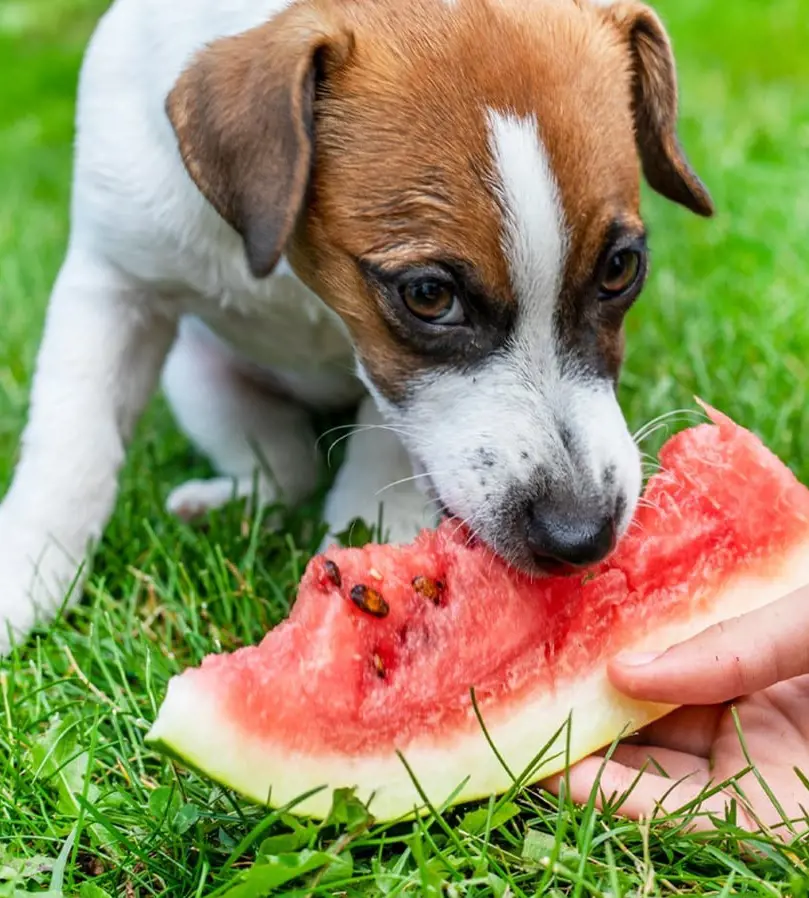
There are lots of fruits your dogs can enjoy safely. Watermelons are safe, hydrating, and refreshing treats your dogs will love, especially on hot summer days. Do not give seeds to avoid choking hazards. Similarly, other fruits like Mango and peaches are also tasty dog treats.
Fruits contain naturally occurring sugars and are high in vitamins, a sweet and healthy treat for your dog.
10. Green Peas
Dogs can eat green peas safely. Green peas are a pretty healthy, low-calorie snack to give to your dogs as treats one by one. It is also rich in fiber and other beneficial vitamins for your dog's growth.
11. Chicken and Turkey
Meats are a fantastic source of protein for your dogs. So, lean meat like chicken or heavier turkey meats are great for them. Ensure you do not add lots of spices or salt to them, and feed only the plain pieces of meat.
Also, raw meats can be hazardous to them, so only feed the well-cooked meats for your pups.
12. Oats and Wheat
Oatmeal and wheat are rich sources of Omega-3 fatty acids, linoleic acid, soluble fibers, and other nutrients. These grains are filling and healthy for your dogs and can be included in their regular diet.
Cook the oats in water instead of milk and give other things like eggs, peanut butter, and blueberries for a nutritious meal.
13. Shrimps and Fish
Shrimps are healthy for your dogs when appropriately prepared. Before you serve shrimp to them, remove the shell, tail, head, and legs. Also, avoid salted, fried, or buttered kinds.
Similarly, other boneless fish like Tuna and sardines are also great for dogs. Make sure the canned ones are packed in water rather than oil.
What To Do If Your Dog Eats Toxic Food?
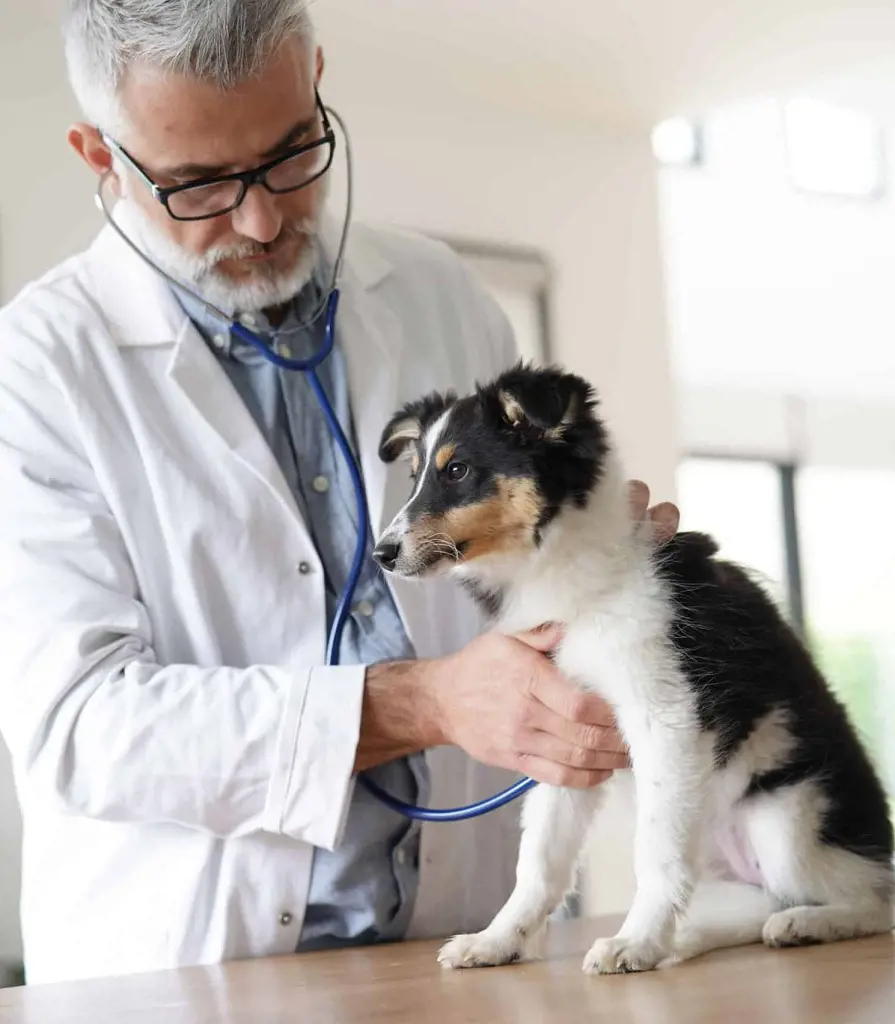
If a dog eats toxic food, get help immediately. Take your dog to your veterinarian if you see severe symptoms in them.
Toxicity signs and symptoms vary depending on the food item the dog has ingested. But the common symptoms like vomiting, diarrhea, shaking, and labored breathing indicate you must take them to the veterinary clinic as soon as possible.
It would help if you also watched out for unusual behaviors like being extremely lethargic, losing appetite, drinking more than usual, slugginess, and more. Call the pet doctor for any suggestions.
Sometimes people tend to figure out themselves and try to induce vomiting as soon as they catch their dog eating something dangerous. But inducing vomiting can worsen the situation many times. It's always best to take the dog to the doctor.
Treatments are more effective, and the duration for hospitalization is less if your dog gets medical attention fast.
Bottom Line
Some human foods are harmful and even deadly for dogs, while others are safe and healthy.
Even if a food is marked safe for dogs to eat, always give it in moderation. All dogs are different, so some may experience adverse effects while others tolerate just fine.
Sometimes, you can give tasty treats to your dogs but make sure you provide only the ones that are safe and non-toxic. The good news is that there are lots of human foods that are healthy for your dogs.
If anything unexpected happens, call your veterinarian immediately and get the necessary medical attention for your furry friend.
